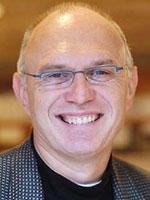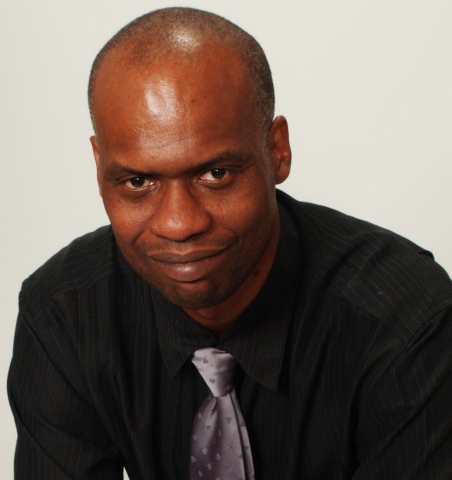
My housemate and I had an odd conversation about the Trayvon Martin case and the state of racism in the US today. It was strange, mainly because we occupy very different perspectives. My housemate is a humble, genuine, and deeply compassionate man who self-identifies as an ultra-conservative that likes Sean Hannity. In comparison, I tend to be the more critical and argumentative member of the household, often pressing him on political perspectives from my position as center-left leaning NPR addict. He is Caucasian and I am Chinese-American, and we are both Christians (Presbyterian even!) living in a mostly black inner-city neighborhood.
The conversation began with a discussion on an article defending a critical witness’s use of “Black english” as perfectly legitimate:
Jeantel’s English is not any more or less grammatical than the Standard American variety spoken by Zimmerman’s attorney, but unlike the defense attorney, she did not have the advantage of speaking the dialect that is sanctioned by America’s dominant social stratum…
Perhaps it should come as no surprise that the Trayvon Martin case, which thrust the persistence of racism in America uncomfortably into the spotlight, has continued to clumsily illustrate the structural disadvantages encountered by millions of black Americans. African Americans are victim not just to gross racial profiling, as was Trayvon Martin, but also to linguistic discrimination, a little-understood prejudice that springs directly from linguistic prescription…
Our discussion became an argument over the distinction between racism and discrimination. We regularly joke with each other about our different cultural backgrounds and sensibilities, and so this conversation inevitably became one about the threshold at which well-intentioned-but-poorly-received actions influenced by stereotype transform into the crimes of racism. It reminded me of this very popular video in which a seemingly polite Caucasian man, meaning no harm (except a little flirtation) has the following conversation with a Korean woman:
Man: Where are you from? Your English is perfect.
Woman: San Diego… we speak English there.
Man: No… um… where are you from?
Woman: Well, I was born in Orange county, but I never actually lived there.
Man: No, I mean before that.
Woman: … Before I was born?
Man: Yeah, well, where are your people from?…
I have conversations like these nearly every week, and though I’ve come to accept and even welcome them as well meaning attempts to learn more about my ethnic background, I used to get frustrated and even hurt by similar incidents. It took me a while to understand and draw a distinction between these sentiments and the more malignant attitudes that I grew around: getting teased in the playground for having squinty eyes, being accused of having my people “stealing jobs from hard-working Americans”, being called to “go back home,” even having a delirious patient call me “Dr. Ching Chong Chang from the shirt factory!” (an interesting reference to the textile manufacturing history of Chinatown).
A deep part of me wants to engage and identify with the significance and victimization that black-white race conflicts introduce into my neighborhood. There’s something empowering about feeling like the victim, of being prepared to expose and even ridicule ignorance when it exposes itself. Somehow it feels like justice to be able to draw on my ethnicity, for once, as a source of power with which to shame others when before it had only been invoked to bring me derision and alienation.

But of course it is nothing of the sort. Miroslav Volf, in his work Exclusion and Embrace, writes:
Resistance to repentance will be even greater if we see ourselves as disprivileged and powerless victims. How will we be able to confess our wrongdoing without seeking to justify ourselves by pointing to the wrongdoing we have suffered, a wrongdoing that both dwarfs any wrongdoing that we might have committed and provides a good deal of explanation for why we committed it? Whether we are aggressors or victims, genuine repentance demands that we take ourselves, so to say, out of the mesh of small and big evil deeds that characterize so much of our social intercourse, refuse to explain our behavior and accurse others, and simply take our wrongdoing upon ourselves: “I have sinned in my thoughts, in my words, and in my deeds,” as the Book of Common Prayer puts it.
This is too small a space to comment on the infinitely complex nature of racism, discrimination, reverse-discrimination, and their myriad variants. Neither is this the space to confirm or deny the deep injustices that have been performed through such vehicles. What I do mean to confess and urge here is a need for humility: that the recognition and criticism of discrimination, while crucial to civil justice and significant in the valuation of God-given human dignity, is not of paramount importance for it cannot save us. It only has the power to punish and to tear down, a power that, though valuable in its own way, cannot itself lead to redemption. Rather, true restoration must eventually lead to Jesus Christ, who absorbed all manner of injustice and vice that we might have life and joy through a new pattern of inheritance:
For as many of you as were baptized into Christ have put on Christ. There is neither Jew nor Greek, there is neither slave nor free, there is no male and female, for you are all one in Christ Jesus. And if you are Christ’s, then you are Abraham’s offspring, heirs according to promise. – Galatians 3
In Jesus Christ, we understand where we are truly from and to whom we are returning.
————

Note from the Editor: Yesterday on ESN’s Facebook Wall (FB), I highlighted the work of George Yancey (Ph.D., University of Texas), Professor of Sociology at the University of North Texas, through several posts. Of particular interest to the topic of Christians wrestling with racism, George Yancey wrote two books for InterVarsity Press: One Body, One Spirit: Principles of Successful Multiracial Churches (2003) and Beyond Racial Gridlock: Embracing Mutual Responsibility (2006).
In his scholarship, Yancey has expanded his expertise in the area of anti-Christian bias and is currently working on projects that document the degree and nature of that bias, e.g., read Tom Trevethan‘s (InterVarsity Faculty Ministry) review of Yancey’s Compromising Scholarship: Religious and Political Bias in American Higher Education (Baylor, 2011). If I am not excited enough about these labors, his seeking to establish the first research-based Center for Christian Studies at a non-sectarian educational institution takes me through the roof. To God be the glory! ~ Thomas B. Grosh IV, Associate Director of ESN.
David graduated from Princeton University with a degree in Electrical Engineering and received his medical degree from Rutgers – Robert Wood Johnson Medical School with a Masters in Public Health concentrated in health systems and policy. He completed a dual residency in Internal Medicine and Pediatrics at Christiana Care Health System in Delaware. He continues to work in Delaware as a dual Med-Peds hospitalist. Faith-wise, he is decidÂedly Christian, and regarding everything else he will gladly talk your ear off about health policy, the inner city, gadgets, and why Disney’s Frozen is actually a terrible movie.

Leave a Reply